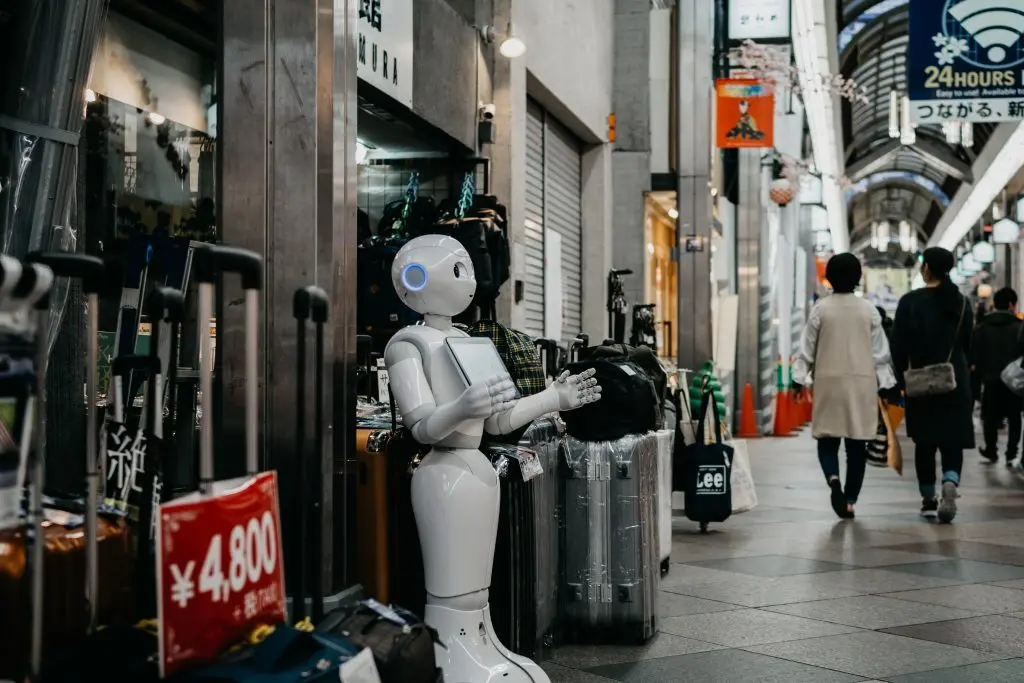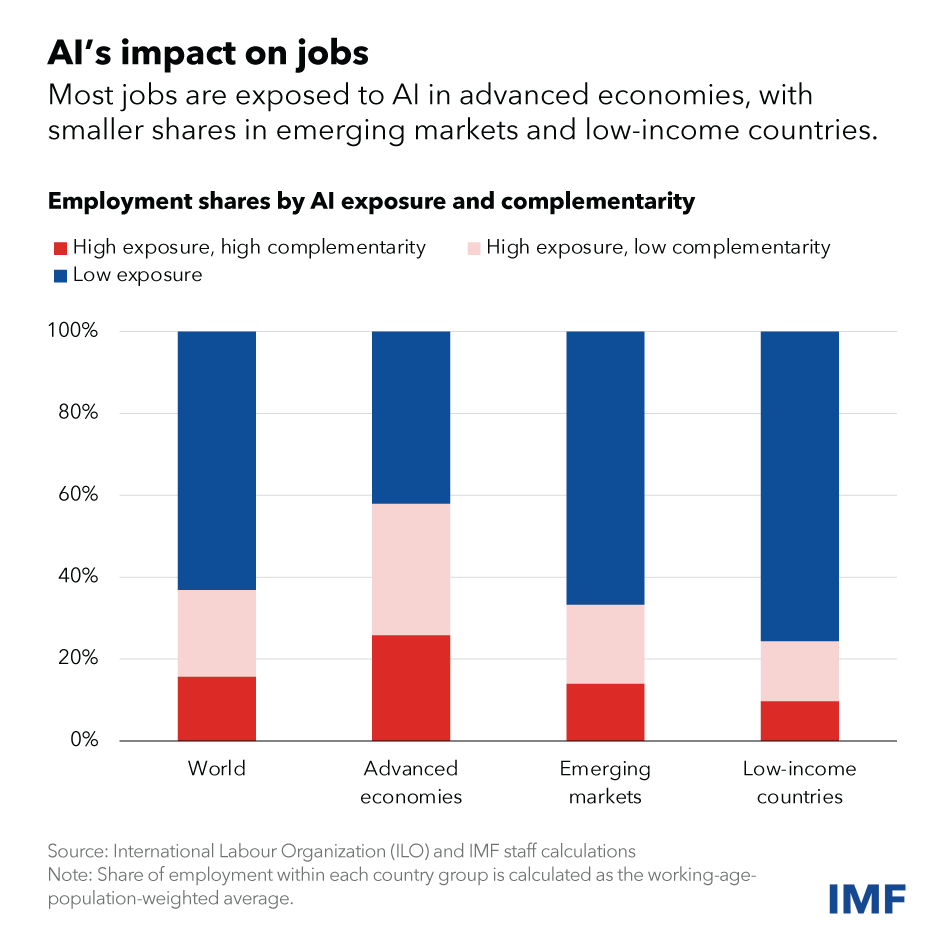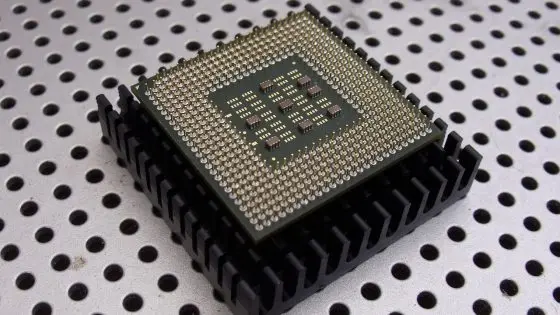Artificial intelligence will affect 40 % jobs worldwide

We are on the threshold of a technological revolution that could accelerate productivity, stimulate growth and increase incomes worldwide. However, they could also replace jobs and increase inequality.
The rapid progress of artificial intelligence has captivated the world, caused excitement and concern, and raised important questions about its potential impact on the global economy. The net effect is difficult to predict, as artificial intelligence will affect economies in complex ways. We can say with certainty that we will have to formulate a series of policies that will allow us to safely use the great potential of artificial intelligence for the benefit of humanity.
Changing the nature of work
In a new analysis, the International Monetary Fund (IMF) examines the potential impact of artificial intelligence on the global labor market. Many studies have predicted the likelihood that artificial intelligence will replace jobs. However, we know that in many cases UI will probably complement human work. The International Monetary Fund's analysis covers both forces.
The findings are surprising: almost 40 percent of the world's jobs are exposed to artificial intelligence. In the past, automation and information technology generally affected routine tasks. One of the things that distinguishes UI is its ability to influence high-skilled jobs. Therefore, developed economies face greater risks due to AI - but also with greater; opportunities to exploit its advantages - compared to emerging market economies and developing economies.
For developed economies, the IMF predicts that artificial intelligence can affect approximately 60 percent of jobs. About half of exposed jobs can benefit from the inclusion of artificial intelligence, which increases productivity. For the other half, UI applications can perform key tasks currently performed by humans, which could reduce the demand for labor, resulting in lower wages and less employment. In the most extreme cases, some of these jobs may disappear.
On the other hand, it is expected that in developing markets and in countries with low incomes, UI exposure will amount to 40 and 26 percent, respectively. These findings suggest that emerging market economies and developing economies face fewer direct disruptions from AI. At the same time, many of these countries lack the infrastructure or skilled workforce to take advantage of AI, increasing the risk that the technology could eventually increase inequality between countries.

UI could also affect income and wealth inequality in countries. We may see polarization within income classes, with the productivity and wages of workers who can take advantage of AI increasing, while those who can't will fall behind. Research shows that artificial intelligence can help less experienced workers increase their productivity more quickly. Younger workers may find it easier to take advantage of opportunities, while older workers may find it difficult to adapt.
The effect on income will largely depend on the extent to which UI will supplement workers with high incomes. If UI significantly supplements workers with higher incomes, it may lead to a disproportionate increase in their income. In addition, the increase in productivity of firms adopting AI is likely to increase capital returns, which may also benefit high-income earners. Both phenomena could increase inequality.
Under most scenarios, AI is likely to increase overall inequality, which is worrying. a trend that policy makers must proactively address to prevent technology from further increasing social tensions. It is of key importance that countries establish comprehensive social security networks and offer retraining programs to vulnerable workers. With this, we can make the transition to artificial intelligence more inclusive, protect livelihoods and limit inequality.
Includesreceiver a world powered by artificial intelligence
Artificial intelligence is being incorporated into businesses around the world at an extraordinary rate, which only further indicates that policy makers need to act.
To help countries formulate the right policies, the IMF has developed an AI Readiness Index that measures readiness in areas such as digital infrastructure, human capital and labor market policies, innovation and economic integration, and regulations and ethics.
The human capital and labor market policy component, for example, assesses elements such as years of schooling and labor market mobility, as well as the share of the population included in social security networks. The regulations and ethics component assesses the adaptability of the country's legal framework to digital business models.
Based on the index, IMF employees assessed the readiness of 125 countries. The findings show that richer economies, including developed and some developing economies, are generally better prepared for the introduction of artificial intelligence than low-income countries, although there are significant differences between countries. Singapore, the United States of America and Denmark achieved the highest index scores based on good results in all four monitored categories.
Based on the findings of the AI Readiness Index, developed economies should prioritize innovation and integration of artificial intelligence and at the same time develop strong regulatory frameworks. This approach will foster a safe and responsible UI environment and help maintain public trust. For emerging market economies and developing economies, the priority should be to lay solid foundations by investing in digital infrastructure and a digitally skilled workforce.
The age of artificial intelligence is upon us, and it is still in our power to ensure that it brings prosperity for all.



























